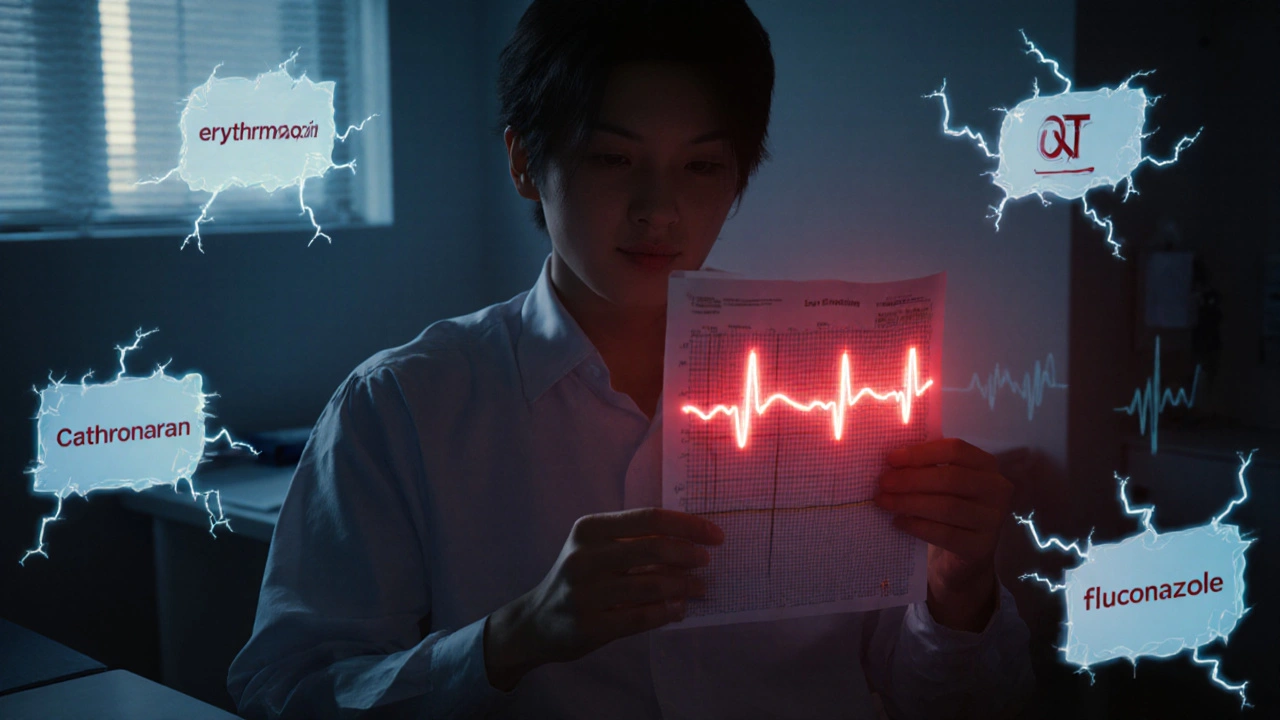Methadone Cardiac Risk: What You Need to Know About Heart Problems and Long-Term Use
When you take methadone, a long-acting opioid used for pain management and opioid dependence treatment. Also known as methadone hydrochloride, it helps millions manage chronic pain or recovery from addiction. But it’s not just about sedation or craving control — it can quietly affect your heart’s rhythm in ways many don’t expect.
The biggest concern with methadone is QT prolongation, a delay in the heart’s electrical recovery phase that can lead to dangerous irregular beats. This isn’t just a theoretical risk — studies show it happens more often than people realize, especially at higher doses or when combined with other drugs. It’s not rare in patients on long-term methadone therapy, and it’s often silent until something serious happens. That’s why knowing the signs — like dizziness, fainting, or a racing or fluttering heart — matters. If you’re on methadone, your doctor should check your ECG before starting and at least once a year after that. Some people need it more often, especially if they’re older, have heart disease, or take other medications that also affect heart rhythm.
Other arrhythmias, abnormal heart rhythms triggered by methadone’s impact on ion channels can include torsades de pointes, a life-threatening type of ventricular tachycardia. It’s not common, but it’s preventable. Risk goes up if you’re dehydrated, have low potassium or magnesium, or are taking antidepressants, antifungals, or certain antibiotics. Many people don’t realize that even over-the-counter cold meds or herbal supplements can interact. Your pharmacist can help flag these. It’s not about avoiding methadone — it’s about managing it wisely. Regular blood tests, staying hydrated, and avoiding alcohol or stimulants can make a big difference.
What you’ll find below are real, practical posts that dig into how methadone interacts with other medications, what heart monitoring looks like in practice, and how other patients have handled side effects. You’ll see comparisons with other opioids that carry similar risks, tips for spotting early warning signs, and what to ask your doctor before your next prescription refill. This isn’t scare tactics — it’s about staying informed so you can use methadone safely, whether you’re managing pain or rebuilding your life.
Methadone and QT-Prolonging Drugs: What You Need to Know About Arrhythmia Risk

Methadone can prolong the QT interval and increase the risk of dangerous heart rhythms, especially when combined with other QT-prolonging drugs. Learn who’s at risk, which medications to avoid, and how to stay safe.
